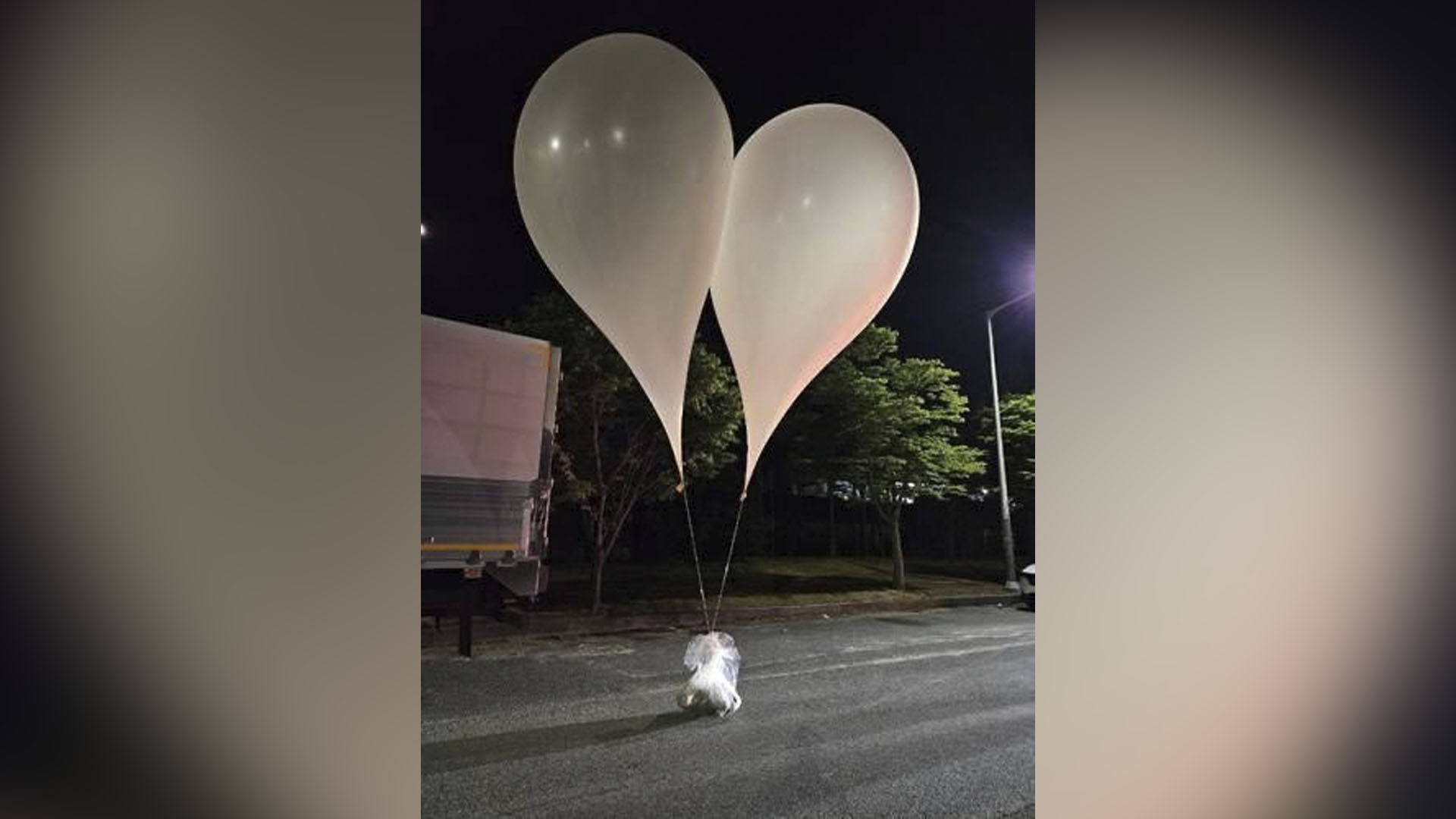

U.S. troops and their families assigned to South Korea received an air raid message warning earlier this week that may have sounded like the beginning of World War III.
But it was just Number Two.
The warning was to let them know that North Korea had sent hundreds of balloons carrying human waste and other foul things across the 38th Parallel.
The poop attack was an apparent act of retaliation against South Korean activists, who sent 20 balloons into the hermit kingdom earlier this month that carried anti-North Korean leaflets and USB sticks containing South Korean pop music and music videos.
As the North Korean fecal air assault unfolded, the South Korean government sent out an air raid warning about 11:34 p.m. on Tuesday. One user on the unofficial Air Force subredit posted that he received an ominous sounding alert that night.
“To whatever North Korean entity that floated their f—ing leaflets over down south 20 minutes ago and set off these alarms, F—G STOP. Do it during the daytime when I didn’t just get my 4-year-old to sleep. He has school in the morning and you’re fucking up the rotation. And don’t you try to do this when my next one is born or so help me god, we can fist fight outside the nearest McDonald’s.”
Subscribe to Task & Purpose today. Get the latest military news and culture in your inbox daily.
The South Korean government’s warning, which was sent to U.S. troops’ mobile devices, did not require anyone to shelter in place or take cover, said Army Master Sgt. Thomas Duval, a spokesman for U.S. Forces Korea, or USFK.
“Individual unit commanders and their staff maintained situational awareness of the incident and oversaw reassuring their servicemembers there was no immediate danger,” Duval told Task & Purpose.
So far, none of the North Korean balloons have landed on U.S. military installations, Duval said. USFK consulted with its South Korean counterparts and the United Nations Command to determine the balloons did not pose an immediate danger to U.S. forces on the peninsula.
The Korean War ended in July 1953 with an armistice, not a peace treaty. Tensions between North and South Korea occasionally spike. About 28,500 U.S. troops are deployed to South Korea in support of the country’s Mutual Defense Treaty with the United States.
In addition to launching the barrage of balloons with human waste, North Korea has also conducted ballistic missile tests recently.
The Defense Department continues the situation on the Korean peninsula, Deputy Pentagon Press Secretary Sabrina Singh told reporters on Thursday.
“We are certainly aware of the DPRK’s [North Korea’s] most recent ballistic missile launch, and we’re working as we always do with our partners like the Republic of Korea and Japan and others in the region,” Singh said at a Pentagon news conference. “We continue to condemn these actions. They are destabilizing. We’ve called on the DPRK to stop these actions that are unlawful.”
When asked how the U.S. military would respond if North Korea sent balloons with chemical and biological weapons over South Korea, Singh said she would not answer a hypothetical question.
The U.S. military has no plans to send balloons loaded with American poop into North Korea, she said.
The latest on Task & Purpose
- Married Marines graduate from Parris Island boot camp together
- USS Carney had ‘seconds’ to respond to anti-ship ballistic missiles
- 18th Airborne Corps orders soldiers on staff duty to get some sleep
- Bud Anderson, the last World War II ‘triple ace,’ dies at 102
- Air Force general will jump from one to three stars to lead air commandos